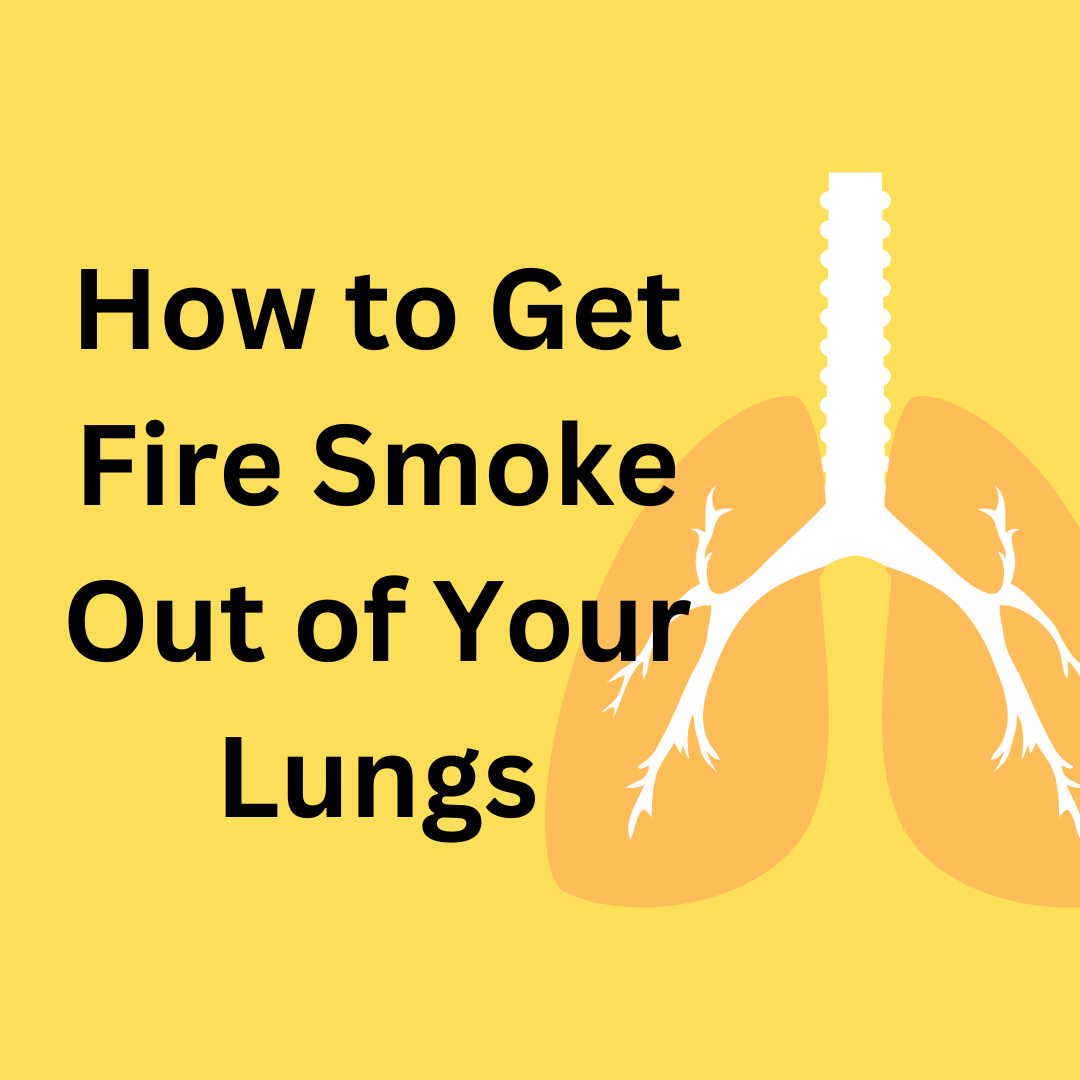
Exposure to fire smoke can have detrimental effects on the respiratory system, leading to discomfort and potential health complications. It is crucial to take prompt action to clear fire smoke from your lungs and restore respiratory health. This article provides valuable tips, remedies, and preventive measures to help alleviate the impact of fire smoke on your lungs and promote a faster recovery.
Assess the Severity of Exposure:
- Determine the level of exposure: Evaluate the duration and proximity of your exposure to fire smoke, as it may influence the extent of the respiratory impact.
- Monitor symptoms: Pay attention to respiratory symptoms such as coughing, wheezing, shortness of breath, chest tightness, or throat irritation. These can help gauge the severity of the smoke’s effect on your lungs.
Seek Fresh Air and Ventilation:
- Evacuate the affected area: If possible, move away from the source of smoke to an environment with cleaner air. This could be outdoors or a well-ventilated space away from the fire.
- Open windows and doors: Create cross-ventilation by opening windows and doors to promote airflow and facilitate the removal of smoke particles.
Stay Hydrated:
- Drink plenty of fluids: Hydration helps thin mucus in the respiratory system, making it easier to expel. Water, herbal teas, and clear broths are good options to keep your body hydrated.
Gargle and Rinse:
- Saltwater gargles: Mix warm water with a teaspoon of salt and gargle for 30 seconds. This helps soothe the throat and reduce irritation caused by smoke particles.
- Nasal rinses: Use a saline solution or a neti pot to irrigate your nasal passages, flushing out any smoke residue that may have been inhaled.
Manage Respiratory Symptoms:
- Use a humidifier: Increase moisture levels in your environment with a humidifier or by taking a hot shower. Moist air can soothe irritated airways and ease coughing.
- Over-the-counter remedies: Non-prescription cough suppressants, expectorants, and saline nasal sprays may provide temporary relief for respiratory symptoms. Consult a healthcare professional before using any medication.
Natural Remedies:
- Steam inhalation: Fill a bowl with hot water, lean over it, and drape a towel over your head to create a steam tent. Inhale the steam gently to help soothe and clear your respiratory passages.
- Herbal remedies: Certain herbs, such as thyme, eucalyptus, and peppermint, have expectorant and anti-inflammatory properties. Drinking herbal teas or using essential oils in a diffuser can provide relief.
- Honey: Consuming honey, known for its antimicrobial and soothing properties, may help alleviate coughing and throat irritation. Mix a spoonful of honey in warm water or herbal tea.
Practice Deep Breathing and Coughing Techniques:
- Deep breathing exercises: Practice diaphragmatic breathing to promote lung expansion and increase oxygen flow. Inhale deeply through your nose, filling your lungs, and exhale slowly through your mouth.
- Controlled coughing: If you experience persistent coughing, learn and employ controlled coughing techniques to effectively clear mucus and irritants from your airways.
Follow Good Respiratory Health Practices:
- Avoid smoking: Refrain from smoking or exposing yourself to secondhand smoke, as it can exacerbate respiratory symptoms and impede the healing process.
- Maintain a clean indoor environment: Regularly clean your living space, vacuum carpets, and change air filters to minimize the presence of smoke residue and other irritants.
Seek Medical Attention:
- Consult a healthcare professional: If your symptoms worsen, persist, or if you have underlying respiratory conditions, seek medical advice promptly. They can provide a comprehensive evaluation, prescribe medications if necessary, and offer further guidance.
Conclusion:
Exposure to fire smoke can have adverse effects on the respiratory system, causing discomfort and potentially leading to health complications. By promptly following the tips and remedies outlined in this article, you can effectively clear fire smoke from your lungs, alleviate respiratory symptoms, and promote a faster recovery. Prioritizing respiratory health, seeking medical attention when needed, and implementing preventive measures can help safeguard your lungs and overall well-being in situations involving fire smoke exposure.
